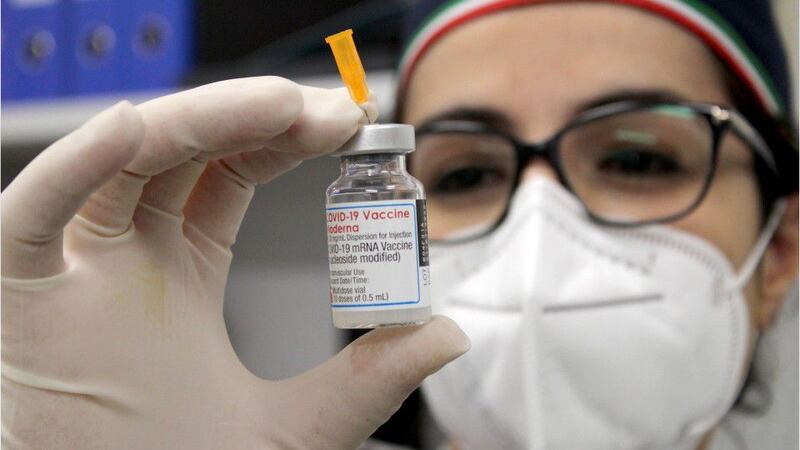A study published Monday in the journal Nature found brain changes in patients who had COVID-19, even if their illness was mild.
The study out of Britain and led by researchers at the University of Oxford is the first study to look at the potential impact of COVID-19 on the brain, NBC News reported. What made this study so different is that it included brain scans of participants both before and after they contracted the virus.
Even after a mild infection, researchers found that the overall size of patients’ brains had shrunk, and there was less gray matter in the parts of the brain that relate to smell and memory, BBC reported.
SARS-CoV-2 Brain Change Study by National Content Desk on Scribd
“We were looking at essentially mild infection, so to see that we could really see some differences in their brain and how much their brain had changed compared with those who had not been infected was quite a surprise,” the study’s lead author, Prof. Gwenaelle Douaud, told BBC.
Douaud and her team used the United Kingdom Biobank, a database containing hundreds of thousands of scans from people in Britain along with pertinent medical data.
Researchers focused on 401 people between 51 and 81 years old who had tested positive for COVID-19, and invited them to have a brain scan approximately five months after contracting the virus, NBC News reported.
“To me, this is pretty convincing evidence that something changes in the brains of this overall group of people with COVID,” Dr. Serena Spudich, chief of neurological infections and global neurology at the Yale School of Medicine, who was not involved in the study, told The New York Times. “To make a conclusion that this has some long-term clinical implications for patients I think is a stretch. We don’t want to scare the public and have them think, ‘Oh, this is proof that everyone’s going to have brain damage and not be able to function.’”
While with normal aging, people lose approximately 0.2-0.3% of gray matter each year, the patients in the study lost between 0.2-2% additional gray matter between scans, and also lost more brain volume and showed more tissue damage in some areas, The New York Times reported.
The most significant loss of gray matter was in regions related to smell, but researchers said it was unclear whether that was because the virus attacked those regions, or because the cells died off from lack of use in patients who lost their sense of smell, BBC reported.
Researchers said it’s unclear whether the damage to the brain can reverse itself, USA Today reported. Douaud told the outlet she hopes to rescan the patients in a year or two to study further long-term effects.
More coronavirus pandemic coverage:
>> Coronavirus: How long between exposure to the virus and the start of symptoms?
>> How to not let coronavirus pandemic fatigue set in, battle back if it does
©2022 Cox Media Group








